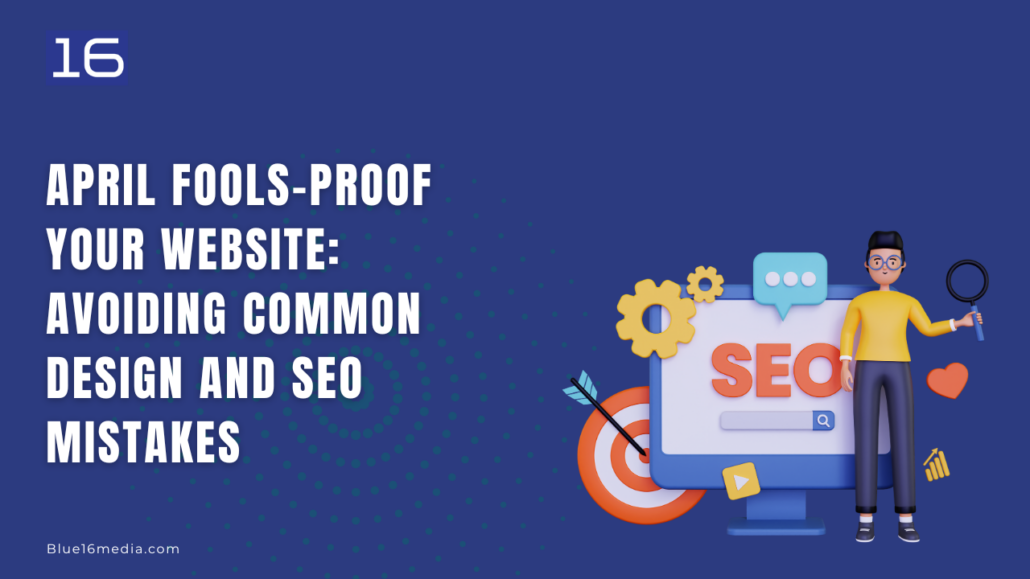Is your website inadvertently playing a prank on its users and search engines? Even seemingly small missteps can damage your website’s online visibility and credibility. For anyone who wants their website to be taken seriously and wants to rank highly on Google, there are some common design and SEO mistakes to avoid.
Common Design Mistakes to Avoid
Let’s start by addressing design flaws that can send the wrong signals or hinder the user experience:
- Slow Loading Time: Nobody wants to wait for a sluggish website. Optimize image sizes, use a fast web host, and minimize complex coding to give your visitors a smooth experience.
- Confusing Navigation: Ensure your menus and site structure are clear and intuitive. Visitors should be able to find what they need quickly without getting lost in the process.
- Mobile Unresponsiveness: With mobile searches dominating internet use, your website must adapt to different screens. Use responsive design to present an optimal experience across all devices.
- Inconsistent Branding: Maintain a consistent color palette, logo, and voice throughout your site to build a strong brand identity for your website.
SEO Mistakes to Avoid
Beyond visual design, there are technical SEO pitfalls to navigate carefully:
- Missing or Poor Keyword Usage: Conduct keyword research and strategically incorporate relevant keywords into your headings, body copy, and image descriptions. Remember, don’t stuff keywords unnaturally.
- Neglecting Title Tags and Meta Descriptions: These are the snippets seen in search results. Craft compelling title tags and meta descriptions that entice clicks and accurately summarize your content.
- Low-Quality Content: Offer genuine value and depth in your blog posts and pages. Thin content and keyword stuffing are penalized by search engines.
- Broken Links and 404 Errors: Regularly check for and fix broken links, as they degrade the user experience and can harm your rankings.
- Ignoring Image Optimization: Always name your image files descriptively and use alt text to tell search engines what your images are about.
Foolproof Your Website: Best Practices
To ensure you’re on a search-engine-friendly path, implement these positive practices:
- Focus on a Great User Experience (UX): Put yourself in the shoes of your visitors. Is your site easy to navigate? Are pages well organized and free of clutter? Is the content valuable and engaging? Prioritizing UX has a direct impact on SEO: satisfied, engaged users spend longer on your site, reducing bounce rates and signaling relevance to search engines.
- Build High-Quality Backlinks: Backlinks are like votes of confidence from other websites. Aim to earn backlinks from reputable sites within your niche. Quality far outweighs quantity here. This can be done through guest blogging, creating shareable resources, or offering valuable insights that others may want to reference.
- Track Your Progress: Tools like Google Analytics and Search Console are your best friends. Monitor your website’s traffic, identify top-performing pages, see where your visitors are coming from, and uncover any technical SEO issues. This data is invaluable for guiding your content strategy and making informed optimizations.
So, those are a few common design and SEO mistakes to avoid and the best ways to foolproof your website. By doing so, you’ll set your website up for long-term online success. Remember, SEO is an ongoing journey.
Stay updated on best practices and user preferences to keep your website shining brightly in search results while providing a fantastic experience for your audience.
How Blue16 Media Can Help
Ready to see your website climb the search engine rankings? Let Blue16 Media transform your online presence with our tailored SEO and design solutions. Get in touch for a consultation.


